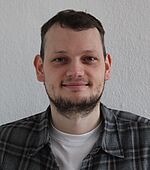- The Institute
- Research
- Dictatorships in the 20th Century
- Democracies and their Historical Self-Perceptions
- Transformations in Most Recent History
- International and Transnational Relations
- Edited Source Collections
- Dissertation Projects
- Completed Projects
- Dokumentation Obersalzberg
- Center for Holocaust Studies
- Berlin Center for Cold War Studies
- Publications
- Vierteljahrshefte
- The Archives
- Library
- Center for Holocaust Studies
- News
- Dates
- Press
- Recent Publications
- News from the Institute
- Topics
- Feature film under National Socialism
- The history of the Federal Ministry of Finance (1945-1990)
- Reordering Yugoslavia, Rethinking Europe
- Munich 1972
- Confronting Decline
- Digital Contemporary History
- Transportation in Germany
- German Federal Chancellery
- Democratic Culture and the Nazi Past
- The History of the Treuhandanstalt
- Foreign Policy Documentation (AAPD)
- Dokumentation Obersalzberg
- Hitler, Mein Kampf. A Critical Edition
- "Man hört, man spricht"
- IfZ
- Center for Holocaust Studies
- Fellowships
- Current Fellows

Andreas Pupkes ist Doktorand an der Humboldt-Universität zu Berlin. Er studierte im Bachelor Geschichtswissenschaften an der Universität Kassel und schloss sein Masterstudium der Geschichte mit Schwerpunkt Zeitgeschichte an der Humboldt-Universität zu Berlin ab.
Nach seinem Abschluss an der Universität war er bei der Gedenkstätte Sachsenhausen und der Stiftung Brandenburgischen Gedenkstätten tätig und wirkte an der Ausstellung „Verwaltung als Verbrechen. Die SS-Behörde ‚Inspektion der Konzentrationslager‘“ mit.
In seinem Dissertationsprojekt mit dem Titel „Der Mitarbeiter:innenstab des Inspekteur der Konzentrationslager (IKL)“ möchte er das beim IKL tätige Personal gruppenbiografisch untersuchen, Tätigkeitsfelder und Arbeitsweisen analysieren und den in der Forschung für diesen Personenkreis gängigen Begriff des sogenannten „Schreibtischtäters“ problematisieren.
Sein besonderes Interesse gilt der Geschichte der nationalsozialistischen Konzentrationslager und der Täter:innenforschung. Während seines Aufenthalts am Center für Holocaust Studies wird sich Andreas mit Gerichtsakten beschäftigen und die Bestände des Archivs der nahe gelegenen KZ Gedenkstätte Dachau sichten.


